Pediatric Research Day showcases work of PReCEP scholars
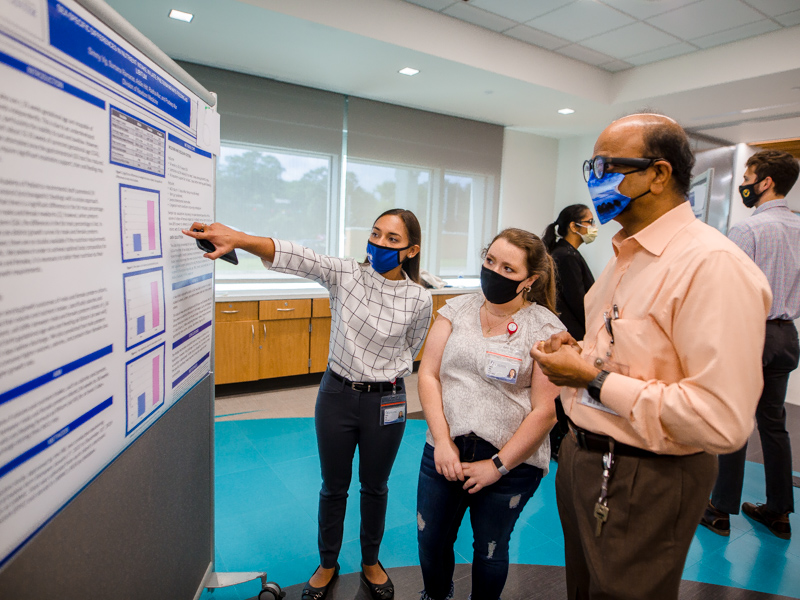
This year’s Pediatric Research Day had plenty of firsts. It was the first time the event was held in the community room of the Kathy and Joe Sanderson Tower at Children’s of Mississippi, the first for Dr. Norma Ojeda since becoming vice chair of pediatric research last year and, for medical students in the PReCEP program, it was a first for their pediatrics research to be included.
The PReCEP students, who will be starting their second year of medical school next month, won two of the event’s three research honors.
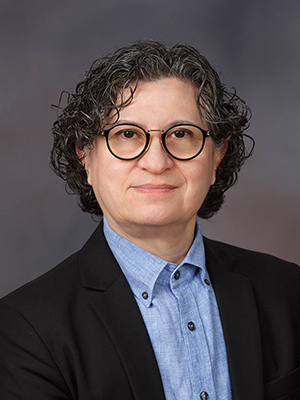
“The medical students participating this year did very good research,” Ojeda said. “Between their first and second year of medical school, they were doing research at the level of fellows.”
PReCEP, an acronym for Pediatric Research and Clinical Education Program, offers medical students mentoring and research opportunities the summer between their first and second years of medical school.
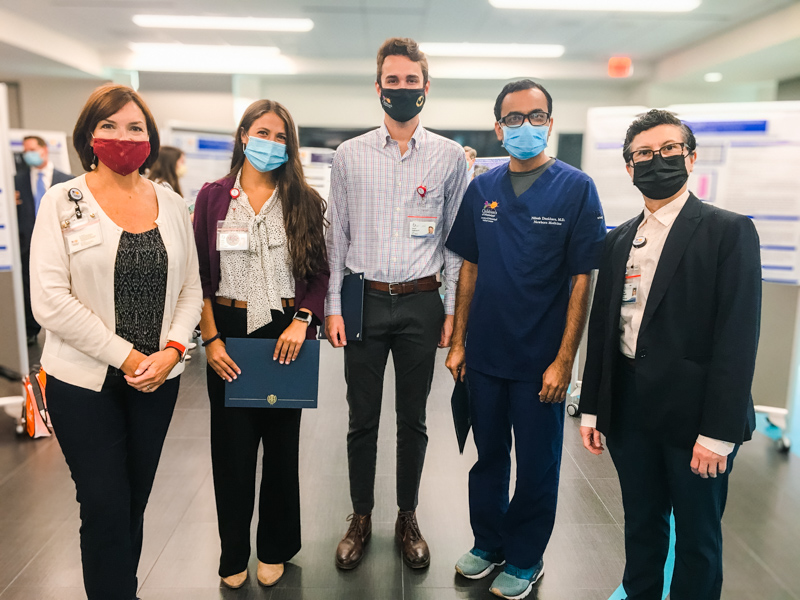
Awards went to rising M2s Emily Turner (first), for her research on inflammatory biomarkers and psychological conditions in pediatric brain tumor survivors, and Rand Henderson (third), for his research on disease transmitted by soil-borne helminths such as hookworms. Dr. Nilesh Dankhara, who will join the pediatrics faculty at UMMC after finishing his fellowship, won second place for his research on intranasal insulin and sex-specific effects on long-term neurobehavioral outcomes after hypoxic-ischemic brain injury.
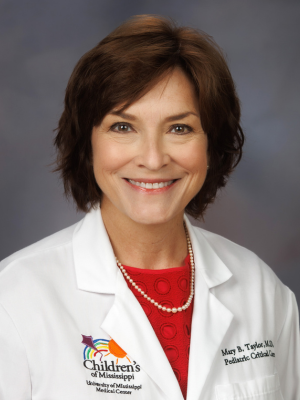
"This is the most successful Pediatric Research Day ever,” said Dr. Mary Taylor, Suzan B. Thames Chair, professor and chair of pediatrics said to participants. “We’ve had the most posters submitted ever, and that shows the huge commitment of you and your mentors.”
Taylor noted that, often, pediatric clinical care is noticed more than the two other missions of the Department of Pediatrics, education and research. “Pediatric Research Day spotlights the great work happening in those areas.”
Rising M2 Simmy Vig, whose research was on sex differences in nutritional needs of pre-term babies, said PReCEP was a great opportunity to learn from her mentor, Dr. Pradeep Alur, and to learn more about pediatrics. “It’s provided a good exposure to the field and also to neonatal intensive care.”
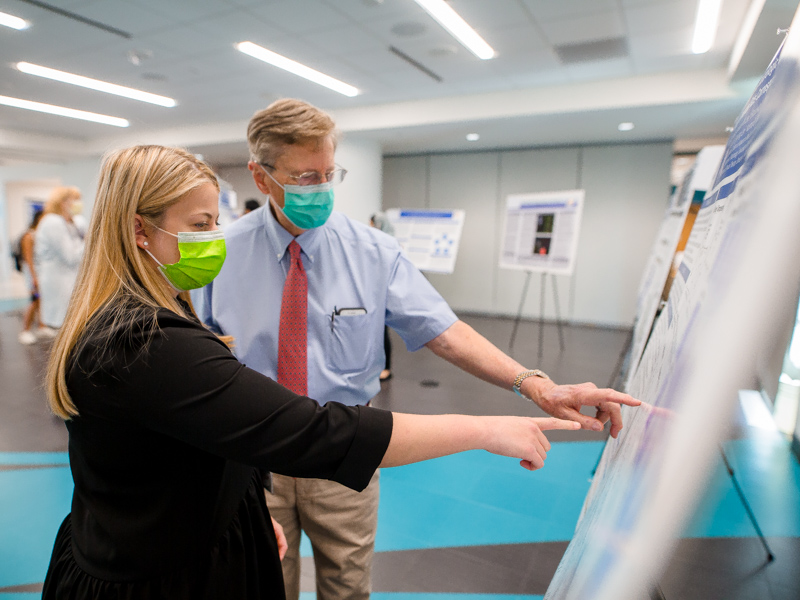
While researching intranasal insulin improving neurologic outcomes following hypoxic-ischemic brain injury in premature infants, third-year neonatology fellow Caroline Glendye discovered that her great-grandfather, Dr. Fred Adair, was among the first to study this type of brain injury, which happens when a baby’s brain is deprived of oxygen.
“We knew he was an obstetrician,” she said, “but I didn’t know he was researching this topic.”
After learning this while looking at family documents with her father, retired ear, nose and throat specialist Dr. Fred Kuhn, they learned Adair, who began his practice in the early 1900s, had studied the condition as a professor at the University of Minnesota and the University of Chicago.
Rising M2 Aren Worrell Presnall wants to continue working on her research project on the long-term effects of Multisystem Inflammatory Syndrome in Children, or MIS-C, a condition similar to Kawasaki disease that occurs in children who have had COVID-19.
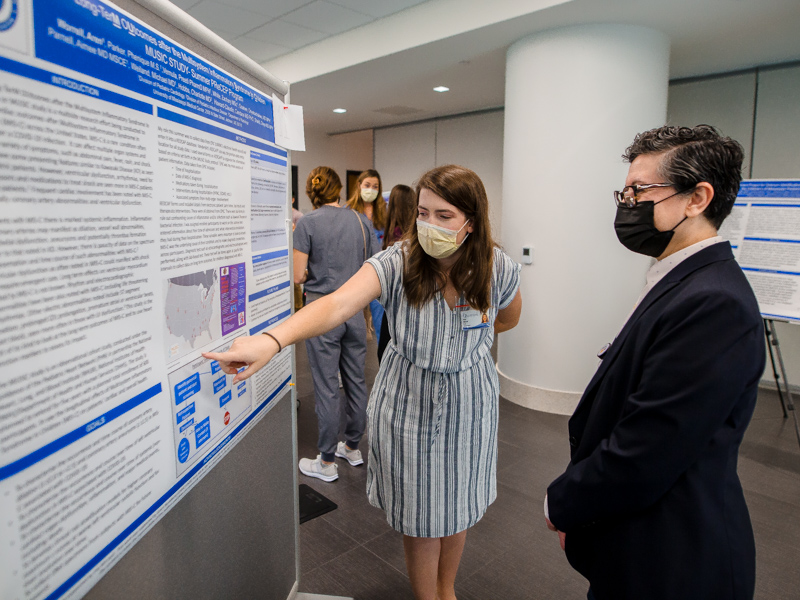
“We’re still accepting patients and would like to follow them for one to five years to look at its long-term effects on children’s cardiac and overall health,” she said.
Other topics researched included construction-related inhalation botulism in children, cardiac strain in children with sickle cell disease and pediatric firearm-related injuries in Mississippi.
Ojeda said the range and quality of research at this year’s Pediatric Research Day was impressive. “These scientists have set the bar high for next year.”


